Undergraduate Students
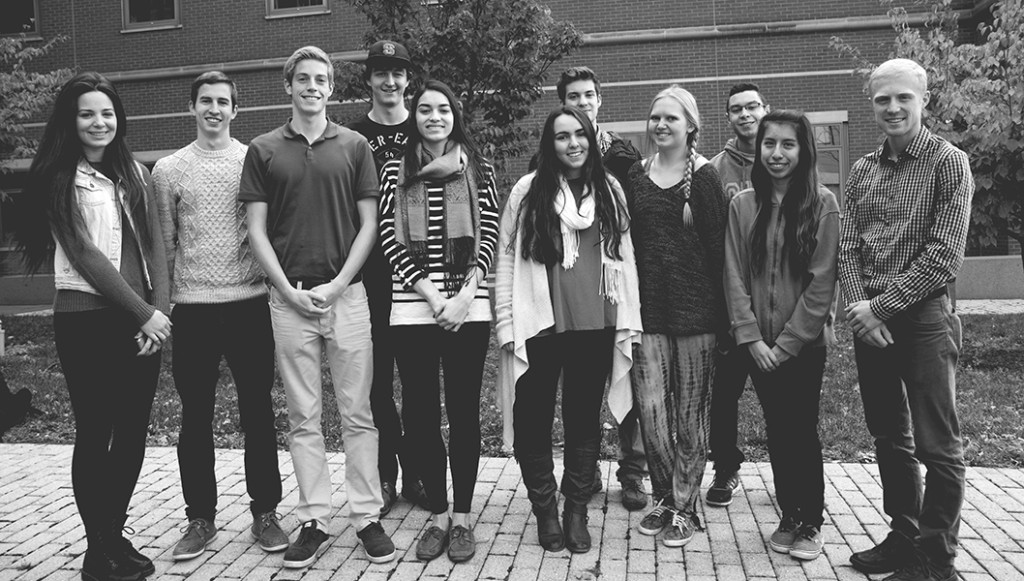
-

Genevieve Pilch
Class of 2017
I am researching the genetic correlations and fitness consequences of components of reproduction including ovule number, pollen number, flower size and inflorescence architecture. I have used a field experiment with F4 recombinant mapping population to quantify fitness components in the field and map their associated QTL.
Founder’s Scholarship and Renée Crown Honors and Biology Distinction Programs
-
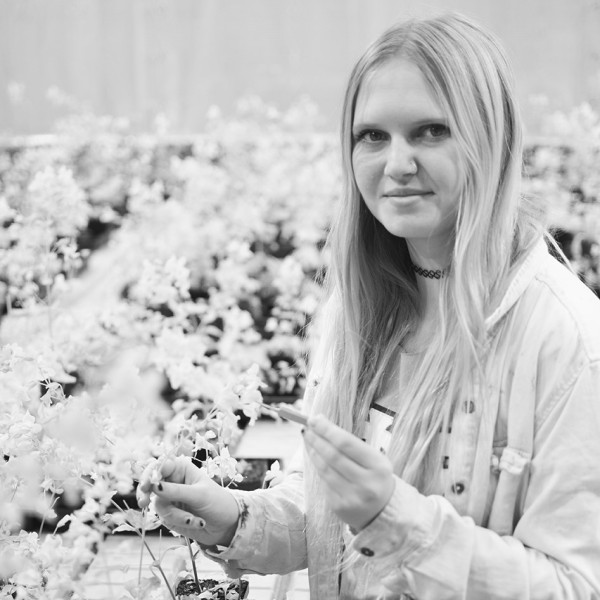
Anna Bjarvin
Class of 2017
I am investigating the consequences of a naturally occurring anthocyanin mutation. The mutation is characterized by a complete absence of anthocyanins in both vegetative and floral tissue, and is controlled by a single recessive locus. We are currently investigating the effects of this allele for growth and survival in growth chamber treatments that vary in their UV light intensity.
-
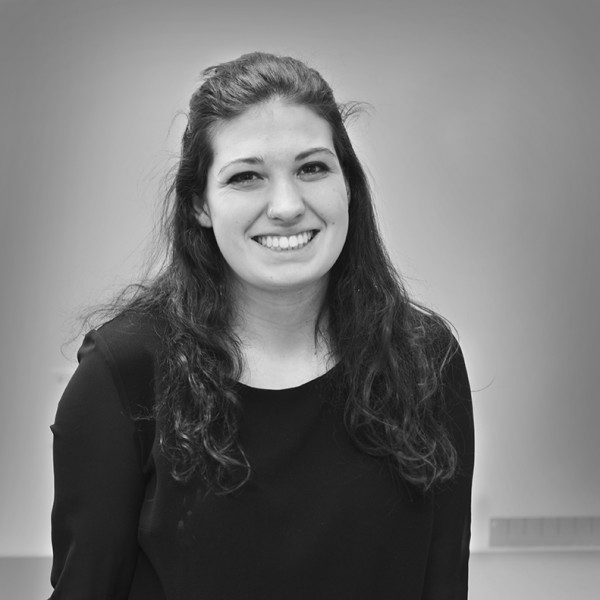
Makayla Dearborn
Class of 2017
I am employing RNAi and an array of sperm phenotype and function assays to assess the contribution of newly created genes to mitochondrial function, in its capacity as an organizing center of axoneme elongation during Drosophila spermatogenesis.
Renée Crown Honors Program
-

Katie Eng
Class of 2017
I am employing RNAi and an array of sperm phenotype and function assays to assess the contribution of newly created genes to mitochondrial function, in its capacity as an organizing center of axoneme elongation during Drosophila spermatogenesis.
Renée Crown Honors and Biology Distinction Programs
-
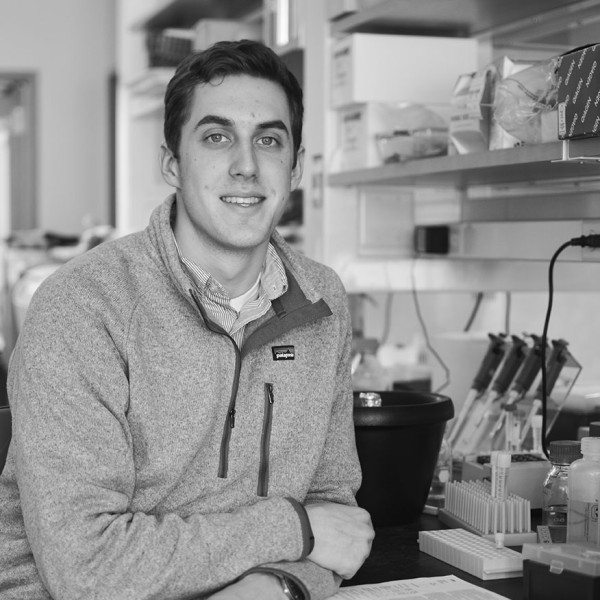
Jake Figaniak
Class of 2017
I am using molecular cloning and germline transformation methods to create a spermatogenesis specific Gal4 “driver” for targeted gene expression experiments.
Renée Crown Honors Program
-
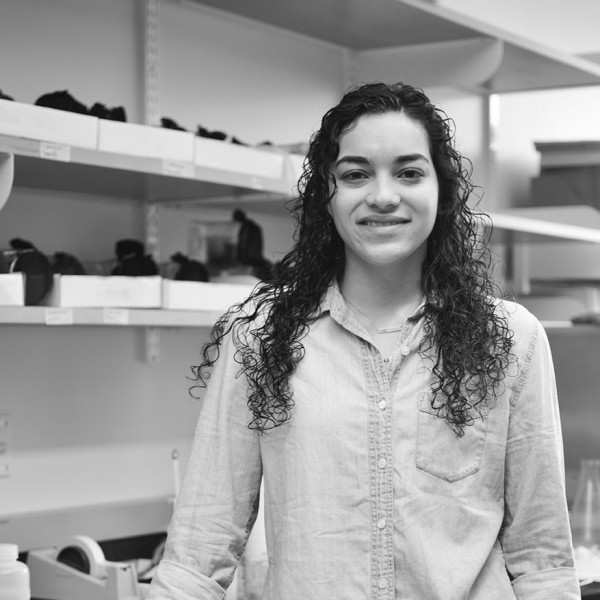
Christina Gandy
Class of 2016
I am working on two projects. The first is an exploration of the fitness consequences of altering natural levels of polyandry among European and American populations of the sepsid fly Sepsis punctum. The second project examines polyandry and sperm heteromorphism in the sepsid fly Sepsis thoracica.
-
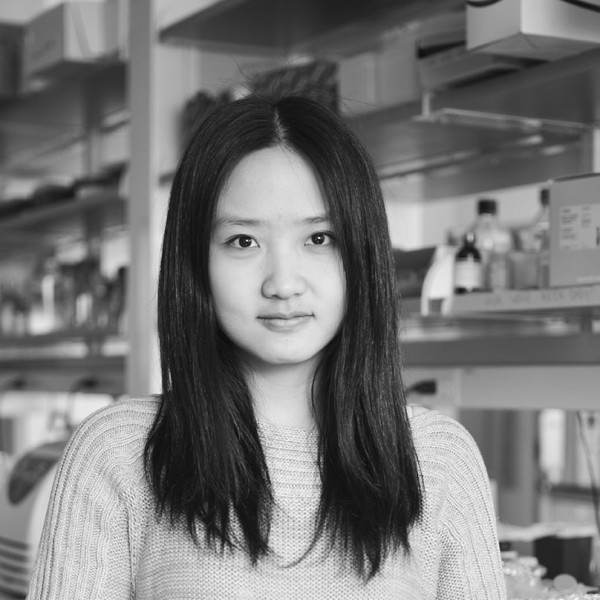
Zhaowei Jiang
Class of 2017
I am employing RNAi and an array of sperm phenotype and function assays to assess the contribution of newly created genes to mitochondrial function, in its capacity as an organizing center of axoneme elongation during Drosophila spermatogenesis.
Renée Crown Honors Program
-
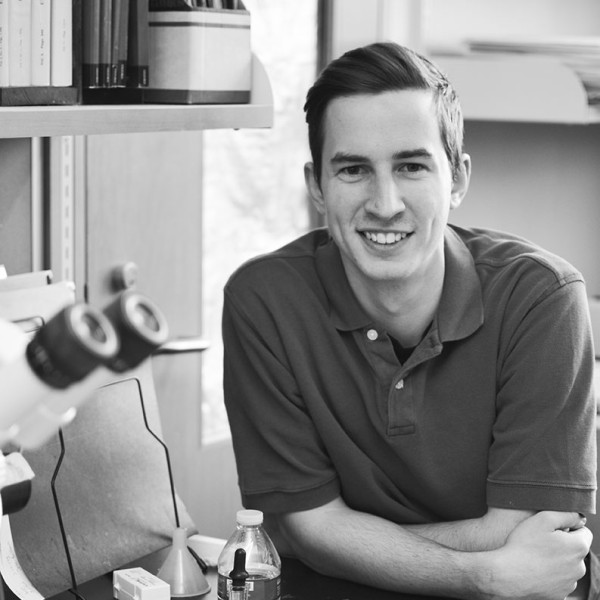
Sean Lamble
Class of 2016
I am investigating the adaptive value of copulatory courtship in Drosophila simulans and, using lines with red and green fluorescent sperm heads, experimentally examining the mechanisms by which copulatory courtship influences competitive fertilization success.
-
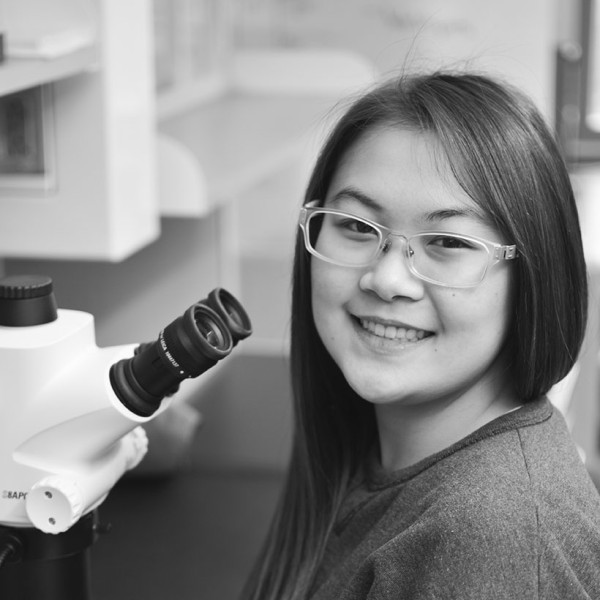
Lynjen Lu
Class of 2018
I am involved in a project examining the functional significance of a touch-sensitive stigma in Mimulus. The lobed stigma closes following manual touch, and we believe this is to enhance pollen export for outcrossing and male fitness. I am testing whether closely related, derived selfing species have lost the touch-sensitivity due to the absence of selection for outcrossing.
-
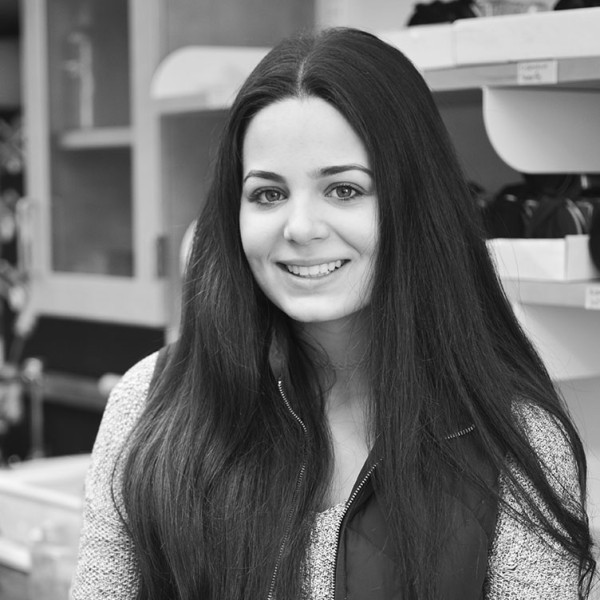
Stefani Mojsoska
Class of 2016
I am working on two projects. The first is an exploration of the fitness consequences of altering natural levels of polyandry among European and American populations of the sepsid fly Sepsis punctum. The second project examines polyandry and sperm heteromorphism in the sepsid fly Sepsis thoracica.
-
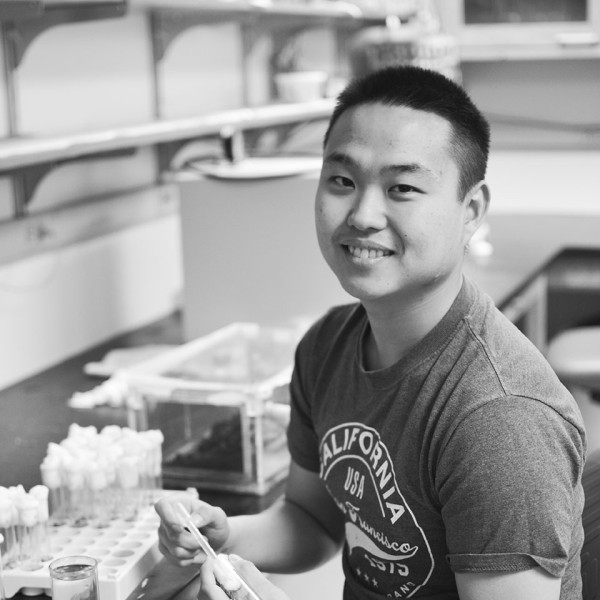
Nicholas Oda
Class of 2017
I am investigating sperm heteromorphism (the production of two discrete sperm morphs) using populations of Drosophila pseudoobscura genetically engineered to produce either GFP- or RFP-labeled sperm.
-
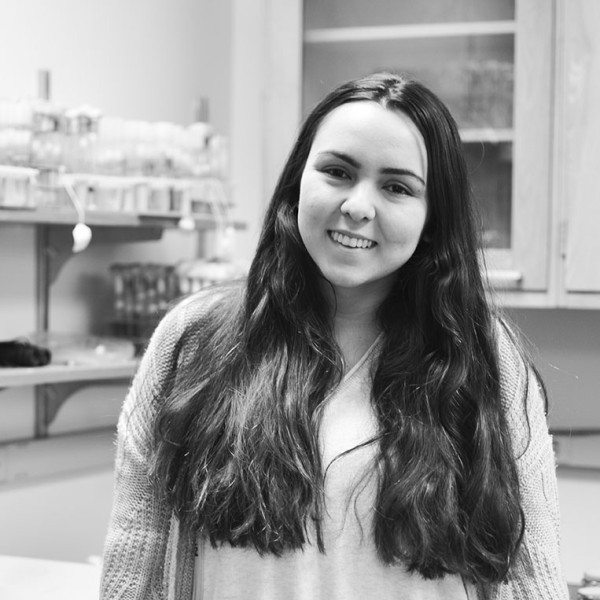
Kimia Roghani
Class of 2017
I am investigating genetic and environmental factors that influence the expression of alternative mating behaviors in yellow dung fly males. This work utilizes large, experimental enclosures that enable long term, detailed behavioral observations of individually marked flies.
-
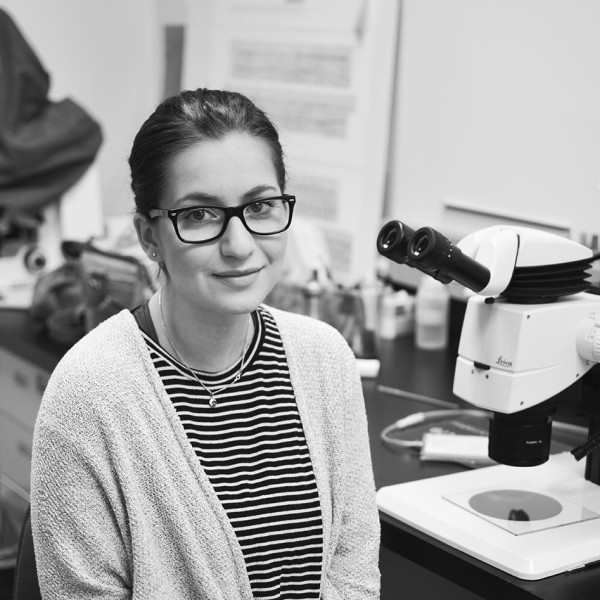
Elen Safarian
Class of 2018
I am using biochemical assays to examine the putative functions of female reproductive tract secretions. Comparing the activity of these secretions at different time points and among species will help us to better understand the female reproductive environment and how it evolves.
Coronat Scholar & Renée Crown Honors Program
-
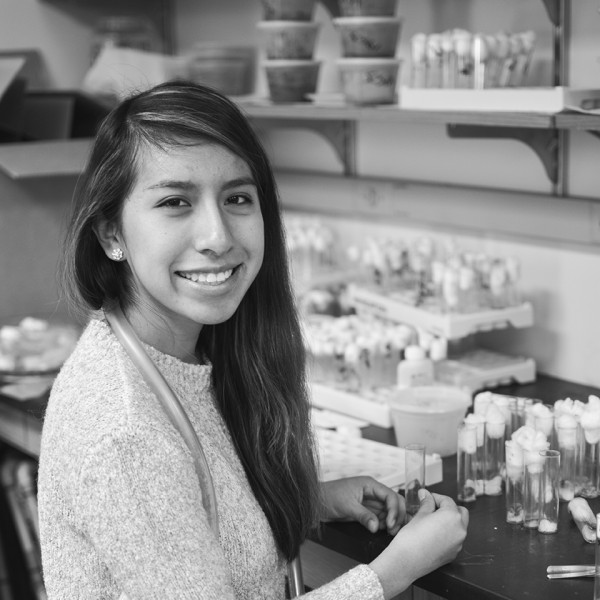
Maria Virgen
Class of 2017
I am investigating genetic and environmental factors that influence the expression of alternative mating behaviors in yellow dung fly males using large, experimental enclosures that enable long term, detailed behavioral observations of individually-marked flies.

